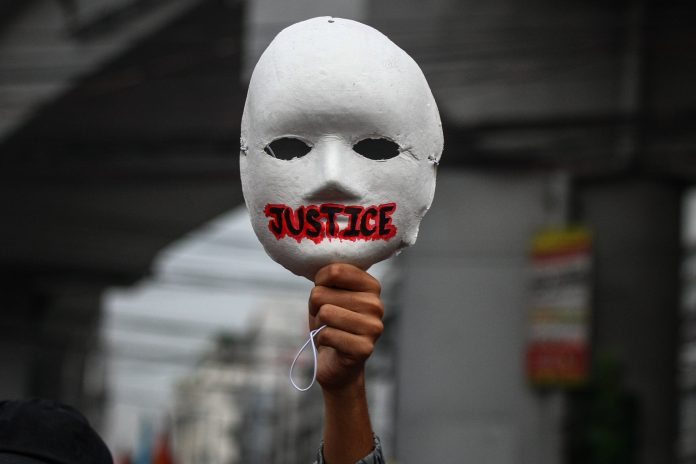Government troops massacred tribal people, including village officials, in the central Philippine province of Panay two days before New Year. In the capital, a scandal over premature, unauthorized use of a COVID-19 vaccine by the president’s security men roiled the holidays.
Army and police officials claimed that they killed nine and arrested 17 guerrillas of the communist New People’s Army in the provinces of Iloilo and Capiz before the year ended. They said the military operations were covered by 28 search and arrest warrants.
Human rights groups and families of the slain disputed the government narrative, saying most of the victims were executed in the style of “drug war” killings since President Rodrigo Duterte came to power in 2016.
The killings of the indigenous people in the central Philippines came as the president hogged news headlines by attacking “corrupt” legislators — reading their names and his allegations — even as he admitted in front of television that there was no clear evidence of crimes against those he accused.
The president’s list included lawmakers who had voted against his wishes in the denial of a broadcast franchise for television giant ABS-CBN, the passage of the death penalty bill, the new anti-terrorism law, and the granting of a porous US$4.5 billion COVID-19 pandemic management budget.
The presidential palace, meanwhile, released conflicting statements to justify the unilateral move of the Presidential Security Group to get Chinese-made COVID-19 vaccine shots months before the country’s health agency rolled out a program for clinical trials.
As officials of the Food and Drug Administration and the Health department issued protests against the use of smuggled vaccines, Duterte’s generals in the Cabinet brushed off criticism, telling Filipinos “to just accept” the need to violate at least four laws in the service of “national interest.”
The tumult over the vaccines sidelined outrage over the recent killing in Tarlac province of a mother and her son by a police officer with a string of criminal cases; the murder of a government doctor and her husband in Negros; and the assassinations of a lawyer and a retired judge.
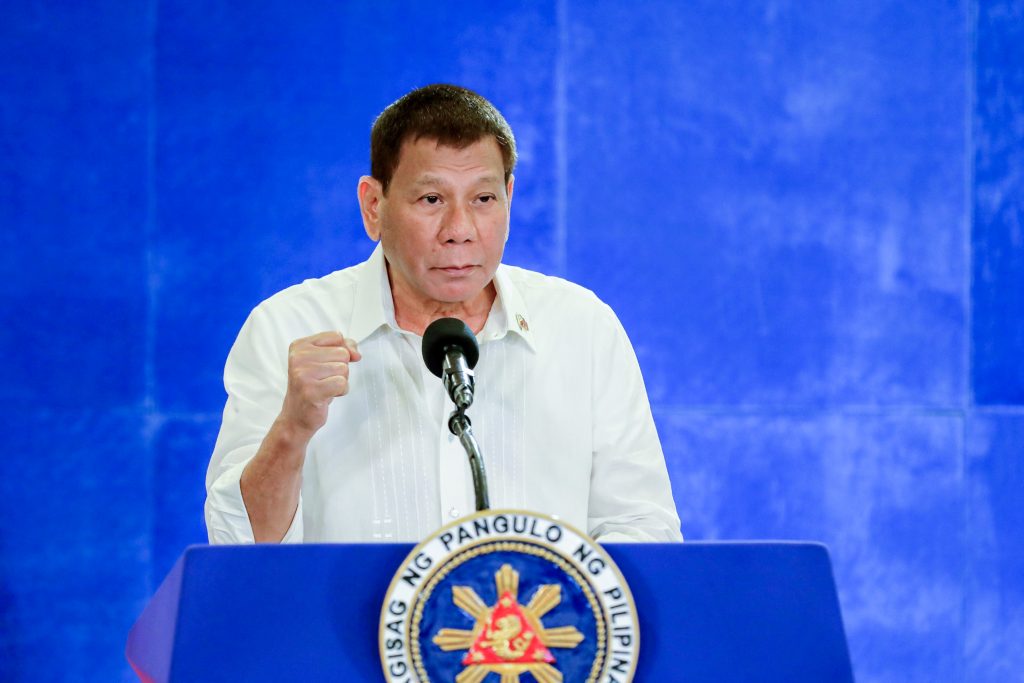
Powers over gambling
The president’s new drama pushed to the shadows one red flag of a tightened military and police grip on governance.
As the year was about to end, the Philippine National Police announced that it has taken over the issuance of all permits for state-managed gambling operations, supposedly to put an end to illegal gambling activities.
The Philippine Amusement and Gaming Corp., buoyed by the influx of Chinese businesses, reported revenues of US$1.58 billion in 2019, more than US$100 million from the previous year. The pandemic has hit it hard, however, and the agency said it lost about 95 percent of revenue in 2020.
The national police said it was brought in to the gambling corporation to “weed out” illegal gambling operators. But the police has been viewed by Filipinos as among the most corrupt of agencies. It has also suffered major blows on its reputation since the start of Duterte’s drug war.
In 2019, the president went out of his way to defend former national police chief Oscar Albayalde from allegations that he blocked an investigation into police muscling into the narcotics trade.
Duterte also shielded current police chief Debold Sinas when photos showed him violating quarantine guidelines with a birthday party.
Even the promotion of Sinas as police chief was controversial after he was linked to a slew of cases of drug war killings in the central Philippine island of Cebu and the massacre of activists in neighboring Negros island.
Sinas also ordered the arrest of activists feeding poor folk affected by the pandemic lockdown when he was still national capital region police chief early this year.
Human rights group Kaparatan said Sinas ascent to the top post signaled a revving up of anti-insurgency operations that will target legal organizations.
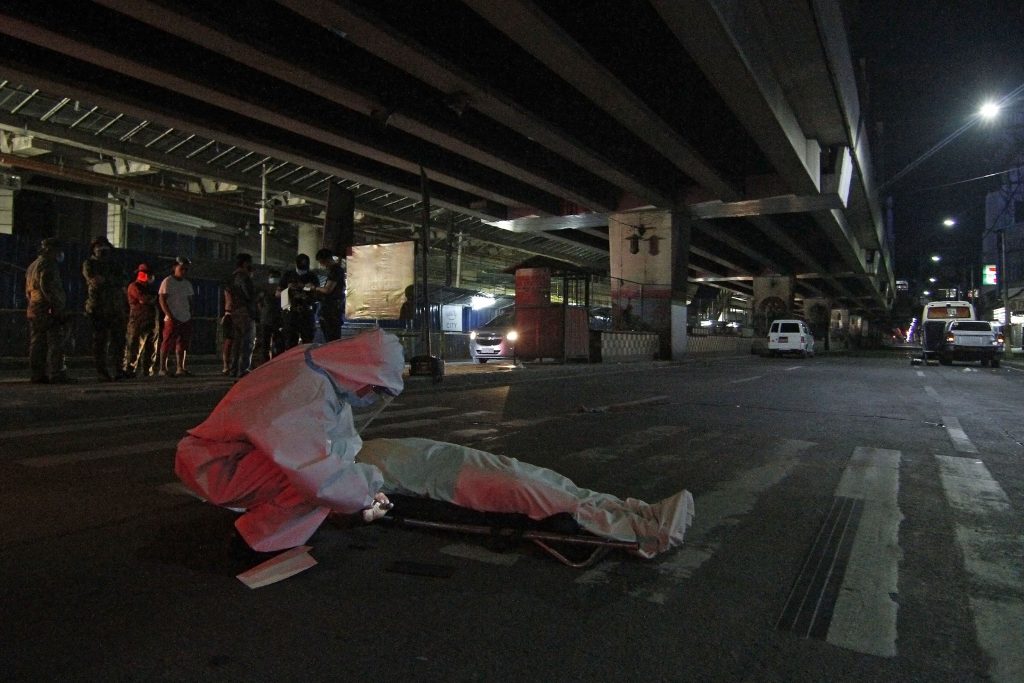
Rural ‘tokhang’
Religious groups, human rights activists, and indigenous people’s rights advocates said the attacks in Panay targeted members of an organization of the local Tumandok tribe.
Father Marco Sulayao, chairperson of the Promotion of Church People’s Rights in the island, said the Tumandoks have been fighting to reclaim their ancestral land from a military reservation and have been opposing the construction of a megadam that will flood their communities.
Before the killings, the Tumandoks and their leaders were the target of “vilification” by the National Task Force to End Local Armed Conflict.
In an interview over Radio Mindanao Network, the widow of slain tribal leader Jomar Vidal Sr. claimed her husband did not fight back when he was arrested by the soldiers and the police. The woman maintained that Vidal was executed.
“Sir, I’m with the government,” the woman quoted her husband, a member of the village security force. “Why are you taking us hostage, why are you killing us?” The man supposedly told the arresting officers.
VIdal’s wife said the soldiers dragged her out of the house with her granddaughter and ordered them to lie face down on the ground before shots rang out.
Meanwhile, the family of tribal leader Eliseo Gayas Jr. claimed that they were ordered to come out of the house before government troops entered and shot Gayas.
The families of village councilor Mario Aguirre and former village chief Roy Gianto also said they were present when soldiers and policemen entered killed their family members.
Cristina Palabay, secretary general of Karapatan, described that incident as “gruesome, cold-blooded rampage.”
The statements of the witnesses brings back to mind the “drug war” operations known as “tokhang,” short for “tuktok” and “hangyo,” literally to “knock” and “appeal” of the government wherein law enforcers are supposed to knock on a suspected drug trafficker or drug addict’s home to persuade the targets to surrender.
Many of the suspects, however, ended up dead after supposedly “fighting back.”
The International Criminal Court has announced in mid-December that there was “reasonable basis to believe that the crimes against humanity of murder, torture and the infliction of serious physical injury and mental harm” had occurred in the context of the Philippines’ “drug war.”
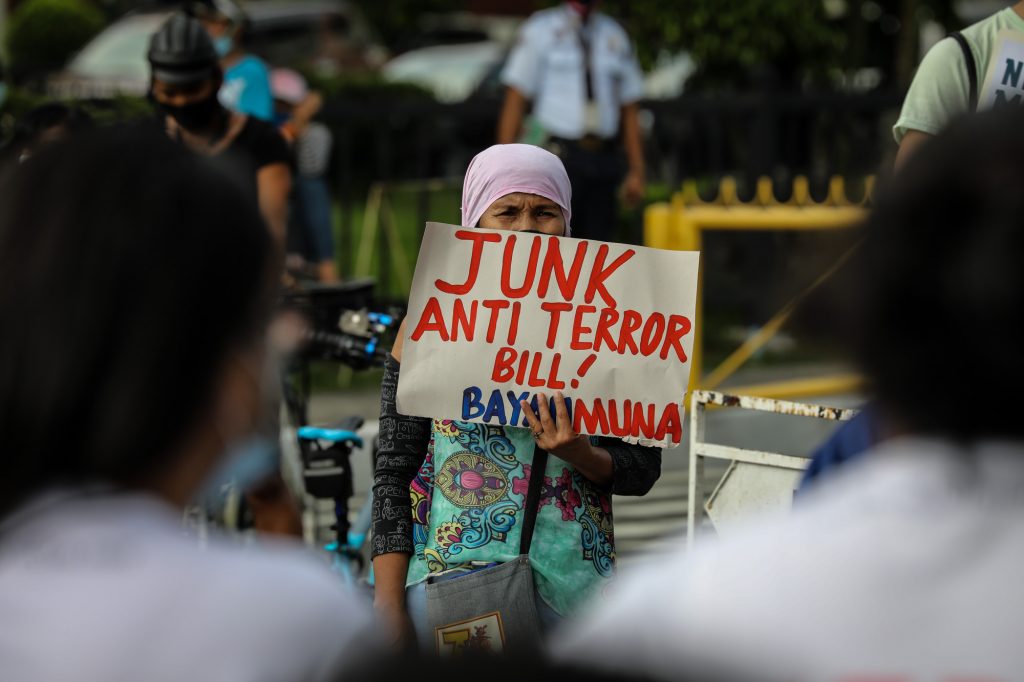
Anti-terror fiction
The government has framed the killings of activists as part of its new war on terror, but Karapatan said the record of 350 activists slain since 2016 show an intent “to instill fear upon indigenous communities to silence their opposition to so-called development projects.”
Father Sulayao said security officials punished officials of the village of Lahug for their refusal to sign a resolution declaring the communists and its armed wing “persona non grata” in the area.
On Dec. 26, the government’s anti-terrorism council declared the Communist Party of the Philippines and the New People’s Army as “terrorist organizations.”
The declaration allowed the freezing of bank accounts that are suspected to be linked to the underground rebel movement.
Dozens of organizations across the political spectrum have challenged the new anti-terror law, which took effect middle of 2020.
The new law allows a small group of officials, the anti-terrorism council, to bypass courts in issuing warrantless arrests, prolonged detention of suspects, and proscription of groups and individuals as terrorists.
The law strips almost all accountability processes, including compensation for individuals wrongly arrested and accused by the state.
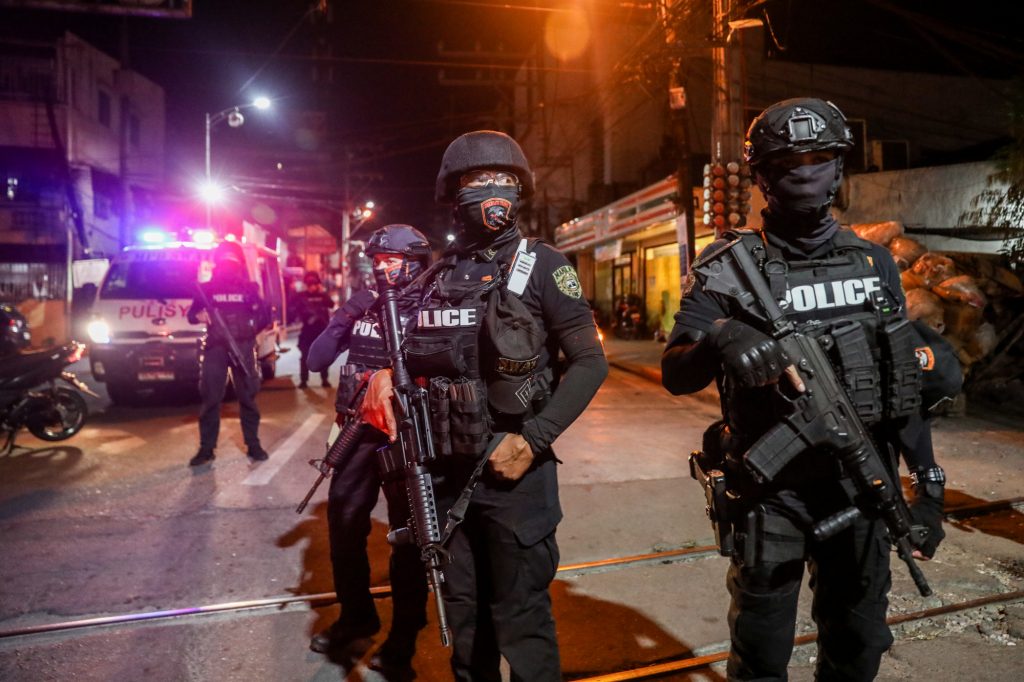
Pandemic brutalities
The pandemic gave seemed to have given Duterte and his government the space and time to perfect intimidation tactics and cast a lasso of fear against officials sensitive to human rights issues.
The Philippines holds the record of having the world’s longest pandemic lockdown and a containment performance that is among the worst in Southeast Asia.
Brutal quarantine enforcement, inefficiency, mismanagement and callous response spawned economic and social fallout wider than the monster ash cloud spewed by Taal Volcano’s catastrophic eruption in January.
The lockdown led to the arrest of at least 30,000 people, the killing of a mentally-ill military veteran, and the battering of others with mental health problems, among others. It also battered the economy, leaving unemployment levels at 40 percent of the national workforce.
The Asian Development Bank said the Philippines’ economic losses would exceed 10 percent of its gross domestic product. State financial agencies estimated profit and wage losses at US$39.5 billion.
The lockdown and the gradual re-opening of commerce and industry showcased the dangers of turning over key government functions to a bunch of elderly retired military and police officers.
The Inter-Agency Task Force for the Management of Emerging Infectious Diseases is supposed to be headed by health professionals. Health Secretary Francisco Duque co-chairs the body, but Interior Secretary Eduardo Año, a former military chief, often overshadows the doctor.
Former general now Defense Secretary Delfin Lorenzana, heads the National Task Force while Carlito Galvez Jr., also a former general serves as “chief implementer” of the COVID-19 policy.
The government’s social amelioration program, slammed for numerous failures, is administered by the Department of Social Welfare and Development headed by retired Army chief Rolando Bautista.
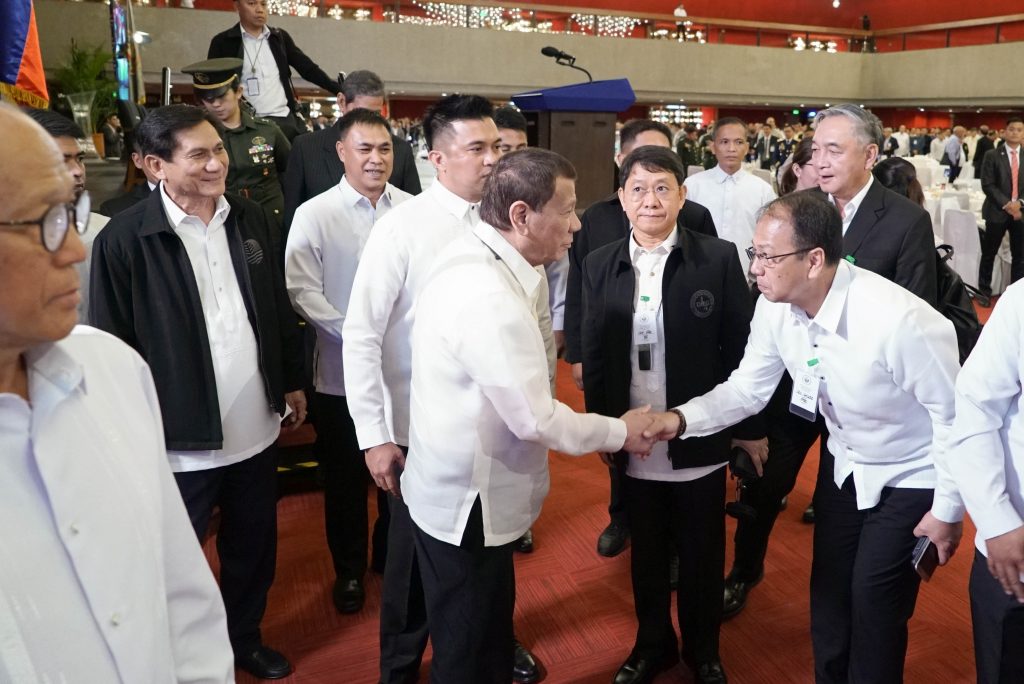
‘Best and brightest’
A third of the members of Duterte’s Cabinet come from the police and the military. The others oversee information and communications technology, the national capital’s traffic and sanitation headaches, departments in charge of technical education and housing.
That comes in handy as the president goes full-blast with the “whole of nation” anti-insurgency strategy that, in a nutshell, aims to use government services and benefits owed citizens as carrot-and-stick in the anti-insurgency war.
Duterte’s claim that generals are more efficient has collapsed in the face of COVID-19 infection levels now nearing half a million, with deaths at more than 9,000.
The president’s generals are all extremely well-educated and there is little doubt of their intelligence, but they share a fatal flaw that, to Duterte, is the chief arbiter of whether you are in or out of favor. The generals will not argue with their commander in chief, and, like him, they will slap down those who argue with them.
Those who show independence are summarily fired or threatened into silence, like a former drug enforcement agency head who disputed the president’s drug addiction figures.
That co-dependency between Duterte and the generals reflects the president’s desperate efforts to shield himself from accountability.
Duterte’s carte blanche for the police on “tokhang” operations, and his promise of pardon for rights abuses, have only increased the number of abuses with little dent on the entry of drugs into the country.
The military’s interest in the vaccine rollout aims to tame the restive provinces while the police are muscling — with the power of official benediction — into gambling.
As Duterte heads into the last year and a half of his presidency, one thing is clear: Tyranny rewards corruption.
Inday Espina-Varona is an award-winning journalist in the Philippines. She is a recipient of the “Prize for Independence” of the Reporters Without Borders in 2018. The views expressed in this article are the opinions of the author and do not necessarily reflect the editorial stance of LiCAS.news.

